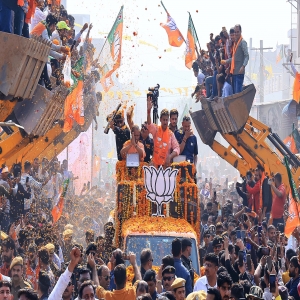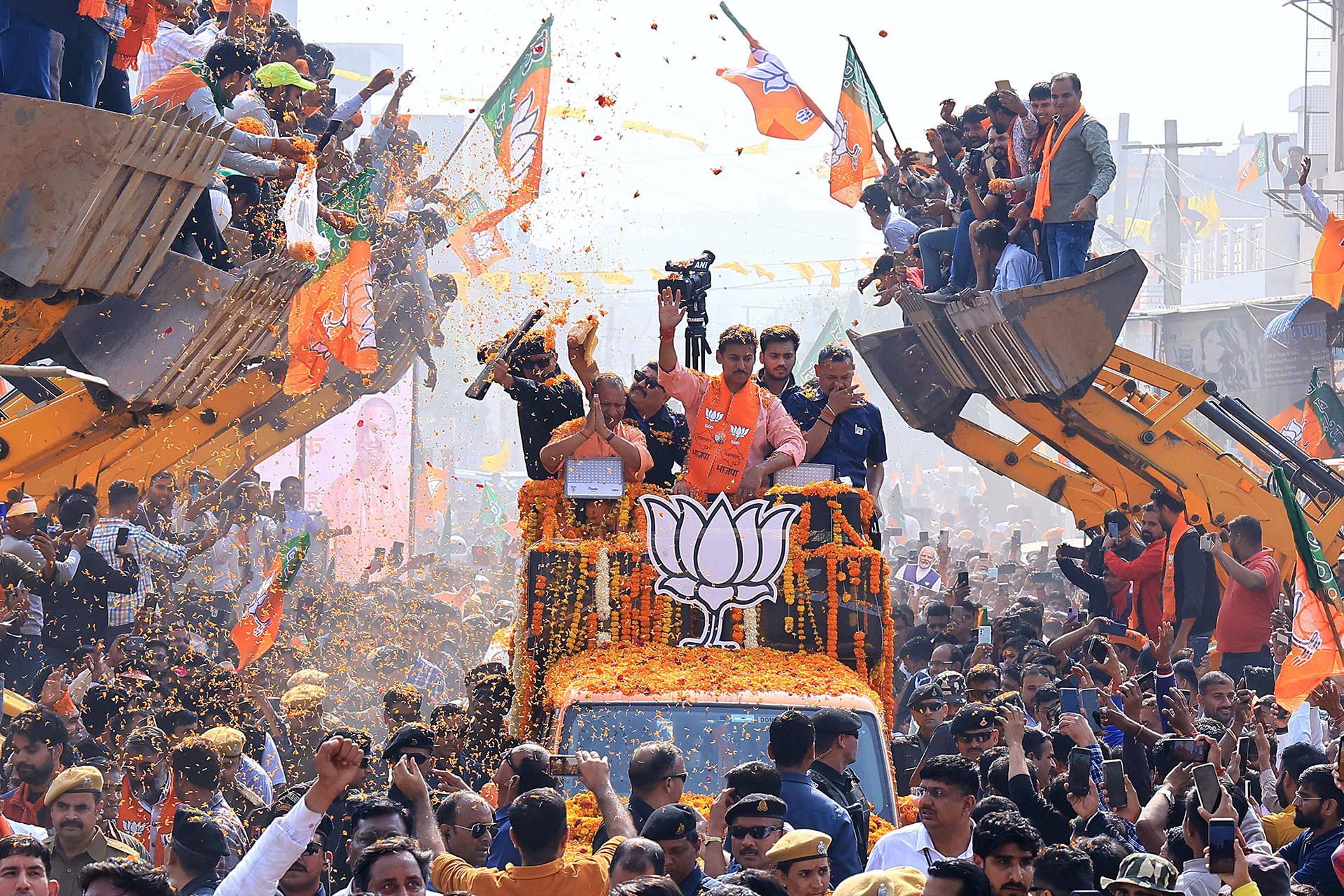
.png) Joseph Maliakan
Joseph Maliakan

The Supreme Court of India, after an inordinate delay on Wednesday, 13 November, ruled that 'bulldozer justice,' the demolition of homes of those accused of crimes without due process, is unconstitutional and directed that government officials indulging in such "high-handed actions" be made accountable.
A division bench of the Supreme Court comprising Justices BR Gavai and KV Viswanathan has taken suo motu cognisance of demolitions of houses and properties belonging to families of accused, mostly Muslims, in many states, especially Uttar Pradesh, Madhya Pradesh, Rajasthan, and Haryana. The bench ordered strict compliance with the Supreme Court's laid-down procedure for removing illegal structures.
The judges observed, "The chilling sight of a bulldozer demolishing a building when authorities have failed to follow the basic principles of natural justice and have acted without adhering to the principle of due process reminds one of a lawless state of affairs,where might was right."
The SC further said that no demolition should be carried out without prior notice and added that the affected parties should also be given time to challenge the demolition order. The Court also issued certain directions that must be complied with before properties are demolished.
The Executive cannot become the judge and decide that a person accused is guilty and, therefore, punish him by demolishing his residential or commercial property. "We have concluded if the Executive in an arbitrary manner demolished the house of a citizen only on the ground that they are accused of a crime then it acts contrary to the principles of rule of law in such matters the public officials who take law in their hands should be made accountable for such high handed actions," the ruling stated.
Such excesses at the hands of the Executive will have to be dealt with the heavy hand of the law. The judgment reiterated that our constitutional ethos and values would not permit any such abuse of power and misadventures that cannot be tolerated by the Court of Law. It further pointed out that if the Executive acts as a judge and inflicts penalty of demolition on the citizen because they are an accused, it violates the principle of separation of powers.
The Court observed that "the right to shelter is one of the facets of Article 21. Depriving such innocent people of their right to life by removing shelter from their hands, their heads in our considered view would be wholly unconstitutional."
Even the accused or the convicts have certain rights and safeguards in the form of constitutional provisions and criminal law. The State and its officials cannot take arbitrary and excessive measures against the accused or, for that matter, even against the convict without following due process as sanctioned by law. When the right of an accused or a convict is violated on account of illegal or arbitrary exercise of power by the State or its official or on account of their negligence, inaction or arbitrary action, there has to be institutional accountability.
Before embarking on demolition, the concerned authorities must satisfy themselves that such an extreme step is the only available option, and the other options, including compounding and demolition of only part of the house property, are not available.
The Judges opined that certain binding directives must be formulated for the Executive to act transparently and avoid arbitrariness. This will ensure that public officials do not act in a high-handed, arbitrary, and discriminatory manner. Further, they must be held accountable if they indulge in such acts.
Therefore, exercising its power under Article 142 of the Constitution, the Court issued directions to be complied with before property demolitions are carried out. Even after demolition orders are passed, the affected party needs time to challenge them before the appropriate forum. Even in cases of persons who do not wish to contest the demolition order, sufficient time needs to be given to vacate and arrange their affairs. "It is not a happy sight to see women, children, and young people dragged to the streets overnight," the Court pointed out.
The Court has fastened liability over officers who violated the judgment. Such officers will be held responsible for restitution of illegally demolished property at their personal cost, in addition to payment of damages. However, the Court has not addressed the issue of compensating hundreds of poor people whose homes have already been bulldozed during the last five years. One hopes the SC will look into the matter and order adequate relief for the victims.